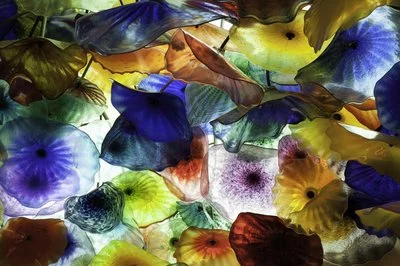Why YSK: These tips may help you pick a more ripe, juicier, sweeter watermelon.
This is all good info except for the gender thing. The round/long difference is just a growth habit. Watermelon plants (and other cucurbits like squash, zucchini, cantaloupe, etc) produce male and female flowers. Only the female flowers produce fruit and must be pollinated by a male flower to do so.
Was about to post this. There is a fact check here: https://www.usatoday.com/story/news/factcheck/2022/04/26/fact-check-false-claim-male-and-female-watermelons/7366708001/ No such thing as male or female watermelons.
So if I’m getting the info correct: the uglier the melon, the better it will taste
Probably because beautiful melons had it easy, while the ugly melons had to work on their personality and talent to make up for the shunning they got from the melon community. Big Melon always presents attractive melons on media, making it harder for ugly melons.
#UglyMelonsTasteBetter
Finally, Lemmy has reached peak Reddit quality shitposting.
I salute you, person.
Also the webbing would vary between varieties.
Also I doubt there’s much variation in “ground spot” color.
This was bullshit the first 2000 times it was posted to reddit and it’s still bullshit here.
Show us on the watermelon where the internet hurt you
<shows pale, tasteless spot>
I just roll my eyes at it now.
FYI there is no reliable way to tell if a watermelon is ripe after it is harvested. The most reliable indicator is the tendril on the node the peduncle is attached to. When it is fully dry, the fruit is ready.
Nah, I’m just going to continue doing what I’ve always done: tapping the watermelon to hear the sound and pretend that I know what I’m doing.
Even on lemmy people still aren’t bothering to fact check things. Disappointing.
Okay how can I tell which watermelon 🍉 is best for insertion ???
The markets where I buy are confident enough in their product that they cut the one you want to taste before you buy. I’ve never found a more reliable method than that.
I’ll just remember “pick the most fucked up looking melon with patchy orange spots and ugly crisscross webbing”. It’s probably not going to make the photo reel but it’ll taste good.
“by gender” 🫠
Why the green arrow for the “wrong” one, and the red arrow for the “right” one?
3 of the 4 items (gender doesn’t matter, variety does) are generally correct.
Source: I’m a former watermelon “cutter” (the guy that goes out in the field first thing in the morning and cuts the good melons off the vine, and turns them belly side up so it’s obvious to the field workers which melons to load up)Also, with the whole thumping thing, most people just look silly doing as they don’t know what they’re doing. If you do thump, ones that have a higher pitched ping are still green, and that have a really dull/flat thud are over-ripe/too gritty/sugary. Also, weight should feel right, too light and it’s overripe/rotten.
In general, any melon sold at the store should be good, just take one and stop trying to be a hero. At least the farmers I dealt with are pretty ethical, they aren’t purposely shipping bad melons. It just takes experience of seeing/handling melons for a while to get the “picking one” correct. Most store I know of have a satisfaction guarantee anyway, take pictures if it’s bad and when you go back get a refund if you’re that concerned with it.
The fuck is a “male” plant ovary?
Yaaa the whole gendered fruit thing I will never understand
I dont know about watermelons but there are a plethora of plants that can not produce fruit without being pollinated by another plant. Also if you ever self pollinate a plant you’ll have to recognize the 2 different parts. Is it just the calling them male/female that bothers you? Edit: I guess I should say plants/flowers can have a sex, fruits I don’t think would. They are just seed dispersers I believe.
Hmm I’m no plant expert, so maybe I’m wrong about this but I thought fruit always grows after pollen moves to an egg like part of the flower/plant, so the ‘sex’ of the fruit is always a combined pollen+egg like cell. This cell develops into a seed while the surrounding plant grows the fruit for various reasons. Maybe there is a heterozygous genetic trait in some plants where we could label the individual as sex A or B, but I thought self pollinating plants were basically both sexes at the same time??? Idk… Maybe I should do some googling but heck the fediverse needs content :P
The scientific definition of “fruit” is the ripened ovary of a flowering plant. This differs from the normal usage so some things not commonly considered fruit, such as tomatoes and the pods of soybeans, are fruits by this definition. Flowering plants (not all plants have flowers) have male and female anatomical structures. Many species have both structures in one flower. Some species have flowers that contains either male or female structures. These flowers can either be on the same plant (monoecious), like watermelon and corn, or on different plants (diecious), like papaya. The ovary, what will become the fruit, is a female anatomical structure, and it makes no sense to talk about a male fruit for any type of flower. Male flowers produce pollen, which fertilizes the embryo in an ovary, but male flowers themselves don’t produce fruit.
This is horse shit
Where’s the part where you slap it?
That’s between you and the watermelon, leave me out of your racy play.
Fruit don’t have “genders,” this is complete bullshit
In my family we just slap the watermelons
Idk man you do you, but I prefer eating them
What did they do to your family?
That is non of our business do what you like
Don’t be melon dramatic
Never eat them, horrible watery bullshit and more effort than they’re worth.
However, a very much appreciated post because my wife loves them and if this is true, I can become the Watermelon Wizard
Thanks, possibly:)
I spent a season working in a packing house for watermelons. They’d come in by the crateload and we were allowed to just grab one to eat any time we wanted.
The trick I was taught, and which proved to be pretty reliable over the course of the season, was to feel the veins. (This is possibly what’s being described as webbing here?) Watermelons aren’t smooth, they have wide “veins” running top to bottom and you can feel them if you put your hand flat on the side of the melon. The bigger/poofier/wider the veins, the more ripe is it.
Tell me more about your veiny melons.
😳
Sus
now do a honeydew

The outside of the honeydew should also be tacky, like you can pick it up with one hand. If it’s smooth and slippery, it’s not ripe.












